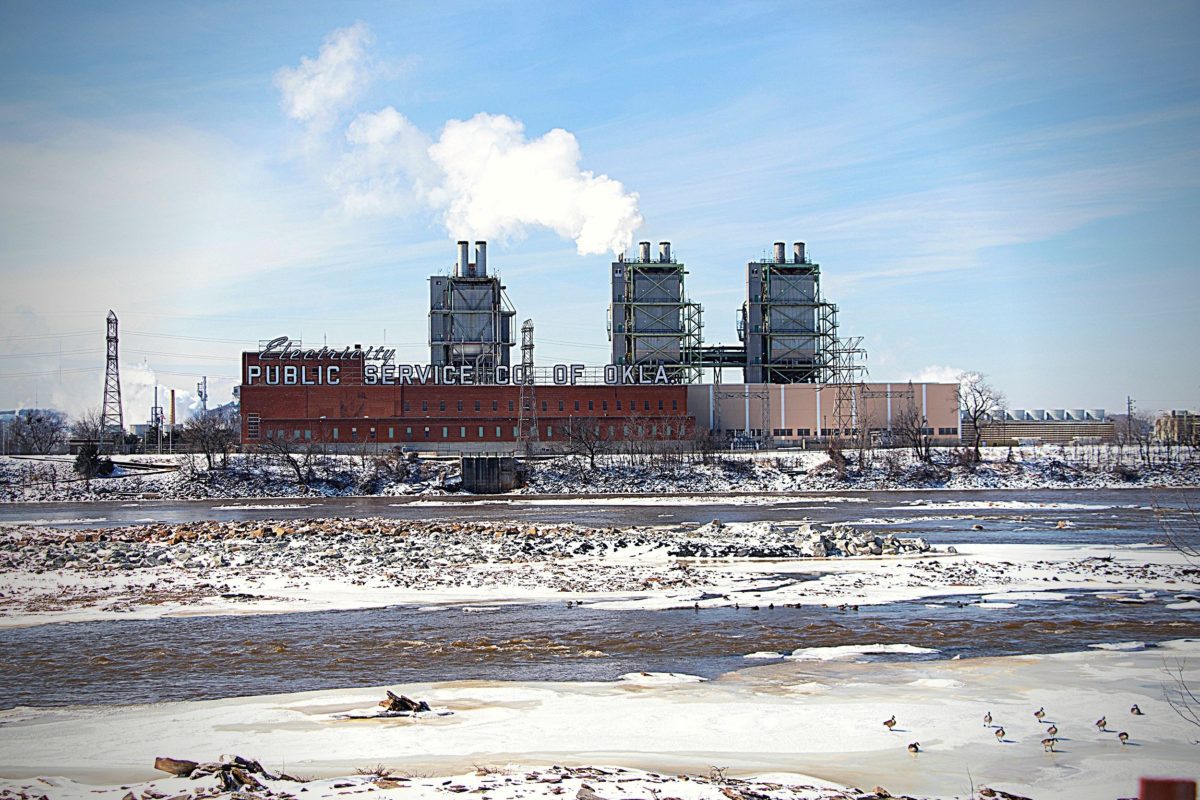
When an Oklahoma Corporation Commission Administrative Law Judge recently recommended approval of a securitization of PSO’s $688 million in February storm costs, it had the support of several groups, but not the American Association of Retired Persons.
The Oklahoma chapter of the AARP opposes the 20-year plan to spread out costs, a move that will mean at least another $4.05 a month on top of a rate hike approved by Corporation Commissioners in late 2021. Combined, it means close to $9 to $10 more a month for PSO consumers.
Why didn’t AARP sign on to the settlement when it was supported by the Oklahoma Attorney General, the Public Utility Division of the Commission, Walmart Inc., and the Oklahoma Industrial Energy Consumers organization?
“AARP Oklahoma strongly opposes the settlement because it negatively impacts PSO residential customers and puts further financial pressure on older Oklahomans, especially those on fixed incomes,” stated Sean Voskuhl, AARP Oklahoma State Director in a statement provided to OK Energy Today.
In a filing with the Corporation Commission, the AARP took issue with the methodology used in determining such a rate hike as proposed by ALJ Dustin Murer in support of PSO.

“In this instance, the allocation methodology reflected in the Settlement Agreement as advocated by OIEC in this Cause, shifts an additional 4% or approximately $30,000,000 in additional costs to residential customers.”
The AARP said the Commission should reject the request to shift more of the winter storm cost recovery to residential ratepayers, especially in light of the recent increase in PSO’s rates from Order No. 722410 which also adopted an allocation methodology that was preferential to large customers with a 4.2% rate reduction at the expense of residential customers.
“The extreme winter weather event that occurred in February 2021 is set to increase customers’ rates for decades to come. Utilities have been given the green light to pay billions of
dollars to entities unknown to the public,” argued the AARP which represents 400,000 members in Oklahoma.
AARP contends the record in the case of PSO and the other utilities “lack specific detailed analysis.”
“The major question is does the Commission have a record before it that provides it not only details of such costs but evaluates whether those costs are the result of prudent action and are fair, just and reasonable as required by the Act,” said the organization in its filing.
It also argues that the Settlement Agreement, as with the stipulation filed and subsequently adopted by the Commission in Order No. 722254 in Cause No. PUD 2021-72 (OG&E’s securitization case), contains an allocation methodology that differs from normal utility recovery of gas and power
costs and is prejudicial to the residential customer class.

“PSO and the Corporation Commission should be holding those who price gouged millions of Oklahomans during the February 2021 winter weather event accountable instead of simply passing the exorbitant costs on to those who can least afford it. The Corporation Commission’s administrative law judge effectively gives the utilities the green light to pay nearly a billion dollars to entities still unknown to the public,” charged Voskuhl in his statement.
What AARP prefers is a rejection of the allocation methodology used in the settlement agreement and instead adopt a plan used in PSO’s testimony to recover funds with a per kWh charge used by customers in the covered period.
“This is consistent with current monthly fuel cost allocation and reflects the decreased usage during the winter storm of larger customers (because many were not open or operating due to the weather) by allocating costs on actual usage by customer class during the storm.”
AARP contends the method used in the agreement shifts an additional 4% or nearly $30 million in additional costs to residential customers.
The ALJ’s recommendation, as reported by OK Energy Today was made last week and regulators have yet to set a date to take a vote on it.
Click here for filing






